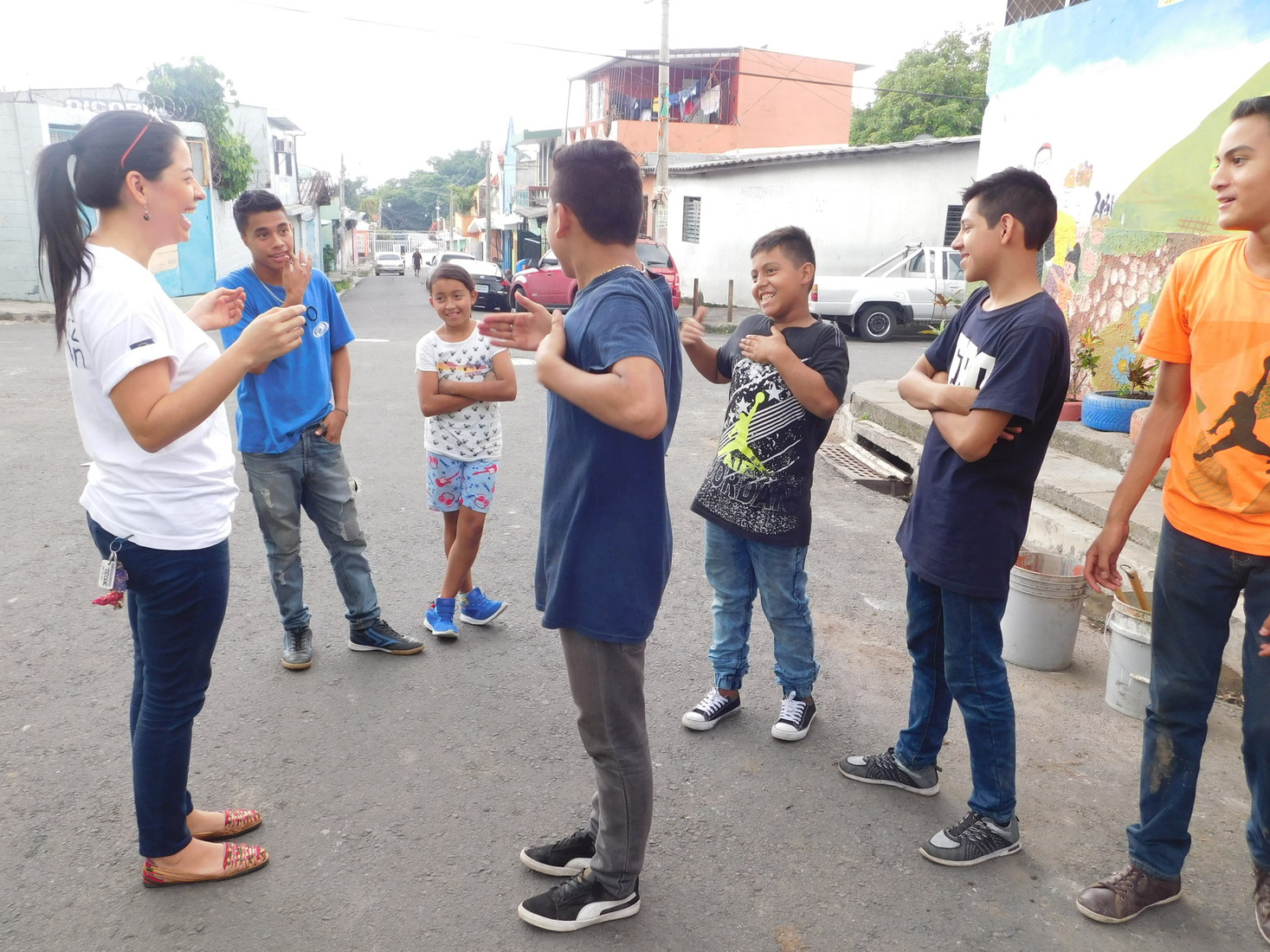
In El Salvador, AFSC supports young local peace network members working to reclaim public spaces. El Salvador / AFSC
Two years ago, I met with members of one of AFSC’s local peace networks in one of the more dangerous neighborhoods of San Salvador, El Salvador. I asked the group—mostly teenagers—to raise their hands if they had a family member who had migrated to the United States. Almost every hand went up.
I wasn’t surprised. I’ve heard from our staff in El Salvador about the violence, inequality, and lack of opportunity facing much of the country.
Working in both the U.S. and Central America makes me acutely aware of the many factors that force people to flee their home countries. It’s a daily reminder of the role that U.S. foreign policy plays in destabilizing the region. And it makes even more stark our country’s failure to create a humane immigration system that addresses the consequences of mass displacement and migration.
I moved to Washington, D.C., after years of living in Guatemala and seeing how much U.S. policies affect people there and how little they can do about it. In Guatemala, I watched as the U.S.-led “war on drugs”—which funnels resources to police and militaries in Central America that consistently violate human rights—exacerbated cycles of violence. I saw how the Central American Free Trade Agreement (CAFTA) flooded the region with cheap, subsidized corn from the U.S., destroying local markets and pushing out small farmers. CAFTA also opened the way for foreign mining companies, which threatened to devastate the environment, with little or no compensation to local governments or people.
I was in Guatemala during the 2008 U.S. elections, knowing that people around me would feel the impacts of who won as much as I would. And yet they didn’t have a vote. So I came back to the U.S. to bring those voices to policy debates here.

There are many reasons why people make the difficult decision to leave their homes and migrate to the U.S. Most migrants have several reasons, if you ask. They may say they came because it was impossible to support their family, but they may also have been forced to close their family business because of extortion, which is not uncommon. Or they may have feared for their lives because they faced violence, whether at the hands of military, gangs, or even the people closest to them.
Young people in San Salvador like those I talked to face both economic insecurity and violence; they were targeted by local gangs for recruitment because they lacked other opportunities. These intersecting realities are driven in part by U.S. policy, which has systematically destabilized the region over decades.
As we push back against xenophobic policies designed to keep people out of the U.S., it’s crucial to recognize our own government’s part in forcing people to flee. This understanding should strengthen our resolve to respond with compassion to those who arrive in the U.S., and it gives us one more reason to stop the detention and deportation machine that tears apart families and communities.
Across the U.S., AFSC staff are working every day to protect immigrants from attacks by the Trump administration. At the same time, in Central America—where many migrants are from—AFSC is helping young people form local peace networks to reduce violence and build peace in their communities. We’re also calling on national governments to recognize the migrant crisis and provide protections to people displaced throughout the region.
By working directly with communities in Central America to build peace, challenging destructive U.S. foreign policy, and advocating for a just and humane immigration system, we can help to create a world where everyone has the opportunity to thrive.
This article was published in the Spring 2018 of Quaker Action, now available online.